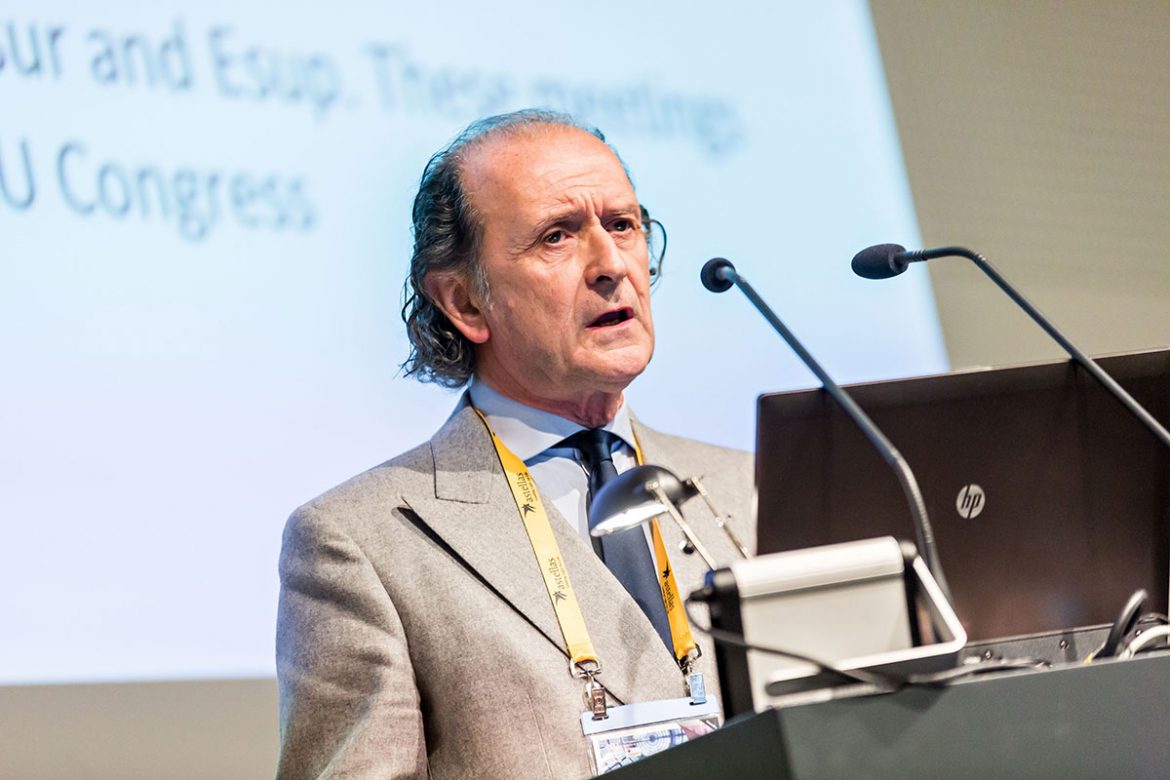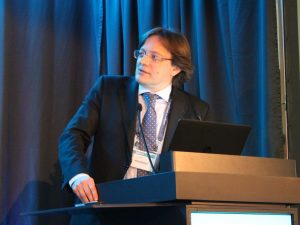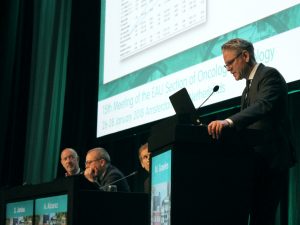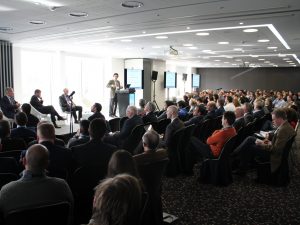The 14th edition of the ESOU Meeting is the culmination of contemporary ideas and strategies centred on improving patient care. ESOU Chairman, Prof. Maurizio Brausi (IT) states that the core aim of the meeting is to update the onco-urology global community with the latest advancements in research and surgery.
The ESOU programme is innovatory; from the management and treatment of patients with urogenital malignancies to ongoing clinical and basic research concerning urological cancers. Europe’s leading opinion leaders will present their valuable insights through Pro-and-Contra debates, panel discussions including multidisciplinary tumour boards, and videos demonstrating various surgical techniques in onco-urology.
“New, exciting developments in the field of prostate cancer diagnosis such as new markers, and the state-of-art multiparametric MRI with fusion biopsy will be presented. There will be an examination of the new anatomical classification of renal structure (vessels) utilized for renal surgery. Standard therapy for high-risk, non-muscle-invasive TCC (transitional cell carcinoma) of the bladder will be challenged with sequential BCG (Bacillus Calmette-Guerin) + EMDA MMC (electrically stimulated Mitomycin-C). And the latest updates in surgery for metastatic prostate cancer will also be assessed,” Brausi discloses.
One of the most important highlights of ESOU is the highly successful STEPS programme (Sessions To Evaluate ProgresS in the management of urological cancers). Now on its 7th year, STEPS is the definitive podium for promising young clinicians specialising in urological cancers to deliberate with experienced international experts. Since its inception, many young urologists have benefi tted from the STEPS’ unique learning and networking experience. It has provided them the research opportunities, as well as, opportunities to acquire new perspectives regarding a career in onco-urology.
A new and welcome addition to the ESOU programme is the inclusion of an ESU Course entitled “Complications and management of patients undergoing cystectomy”. This course, led by Dr Joan Palou (ES), will take the form of a panel discussion which will allow for an open and interactive learning experience.
“The major challenges in onco-urology would be the development of biomolecular markers, targeted gene therapy, and immunotherapy.”
Brausi also defines the future, possible challenges and breakthroughs in the field. “The major challenges in onco-urology would be the development of biomolecular markers, targeted gene therapy, and immunotherapy. I think that tumour prevention will even be more significant. I anticipate the diffusion of robotic surgery with new robots appearing in the market at lower prices; the standardization of biomolecular markers in diagnosis, focal therapy for prostate and renal cancers, and gene and immunotherapy with new check point-inhibitors,” predicts Brausi.
When it comes to urological cancer, Brausi foresees that multidisciplinary teams will become a must in the majority of the European nations. “There are already countries, such as the United Kingdom, The Netherlands and Germany, where their governments request for a multidisciplinary approach with regard to patients with urological cancers. The Italian Society of Urology (SIU), together with oncological and radiotherapy associations, has developed a programme for multidisciplinary teams to treat uro-oncological tumours. The EAU is supporting the multidisciplinary approach. I think urologists should be the leaders of these multidisciplinary teams as they usually make the fi rst diagnosis and eventually the surgeries in majority of the cases,” states Brausi.
The 14th ESOU meeting will deliver the must-have information onco-urologists need; from the ones in training, for those who are mid-career and for the veteran clinicians.
Registration deadline is approaching. Register now!





